NRCS serves all agriculture – large to small, conventional to organic, rural to urban. As American agriculture continues to grow in new directions, NRCS conservation assistance is growing along with it.
Food insecurity is an everyday reality for many urban communities across the United States. About 23.5 million people live in communities lacking food access nationwide, and 15.8 million of children are food insecure, according to data from USDA’s Economic Research Service (ERS). Many low-income urban areas lack retail grocery stores and access to fresh fruits and vegetables. Convenience stores or fast food franchises provide the only food options, which are highly processed with low nutritional value.
Building Healthy Communities
Urban farmers are addressing food access issues by growing healthy foods for their communities. Urban farms empower people to solve hunger and poverty issues within their community by changing the way people look at what and how they eat; providing jobs and skills training and beautifying and unifying neighborhoods. Many farms also teach citizens how to prepare fresh ingredients for healthy meals.
Conserving our Resources
Urban farmers practice conservation – they convert food waste into healthy soils by composting, minimize storm water runoff by capturing rainwater, save energy costs that would otherwise be used for long-distance transportation of food items, and create more green space in the city.
Growing in Size
Today, 15 percent of the world’s food is grown in urban areas according to ERS. With most of the world’s population residing in cities, this statistic will likely continue to increase. Urban agriculture is part of the rising local food movement aimed at reducing the distance food must travel from farm to table.

Underserved Communities
Historically underserved participants are eligible for advance payments to help offset costs related to purchasing materials or contracting through EQIP.
Small/Urban Farming Conservation Practices
High Tunnels
High tunnels extend the growing season and protect plants from harsh weather, air pollution and pests. By making local produce available for more months in the year, fewer resources are used to transport food.
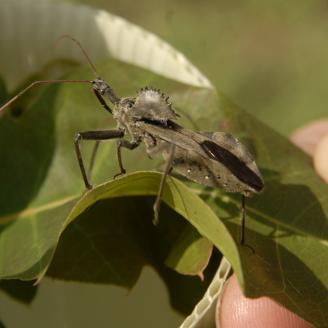
Managing Weeds and Pests
NRCS can help with pest management practices - advising on crop rotations and various types of mulches to reduce weeds and manage insects that harm crops. NRCS can also help with the installation of bat and owl boxes, promote beneficial insects, and companion plantings.
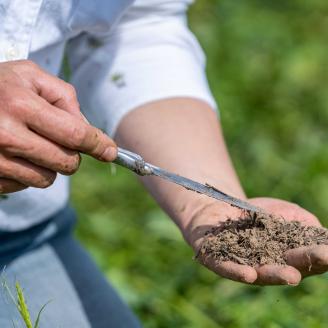
Soil Health
NRCS can help urban farmers develop strategies for improving soil conditions tailored to a farm’s specific needs.

Irrigation and Water Management
NRCS develops irrigation water management plans to assist urban farmers. NRCS has provided financial assistance for conservation irrigation related practices on urban farms such as rainwater catchment, automated, pumps, pipelines and water-efficient drip irrigation systems to help reduce water use, soil erosion and maximize yields.
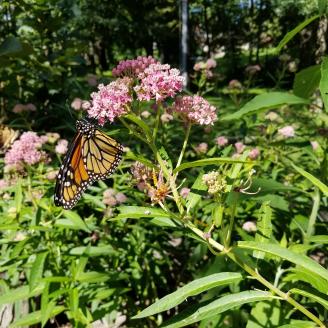
Pollinator Habitat
NRCS helps create pollinator plans to develop habitats that attract birds and beneficial insects, such as butterflies and bees, and improve plant health. Pollinator plantings provide habitat along with providing nectar as a food source contributing to a healthy ecosystem that is essential for farmers to grow food.
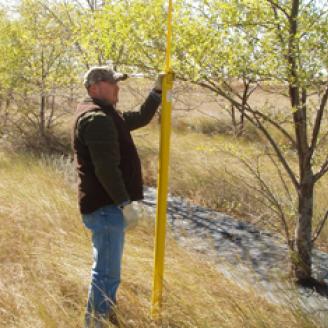
Wind Breaks
Plants can help to reduce soil erosion, conserve energy, reduce heating bills, and serve as a sound barrier in urban neighborhoods and provide shelter for plants and create habitat for wildlife.
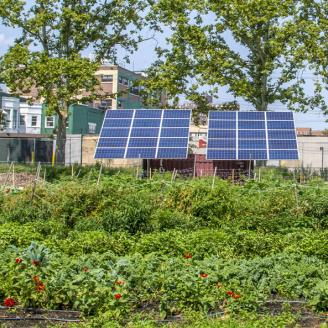
Energy Efficiency
Urban Farming is part of the green infrastructure movement. Energy needs can be improved through an NRCS Energy Audit. Audits also encourage the use of high efficiency heating and cooling systems that reduce costs. Many Agronomic practices also apply to this category that reduce farm outputs conserving energy.

Mulching
This practice is used on all lands subject to erosion and high runoff that need the additional protection. Mulching can be applied to achieve one or a combination of purposes. Mulch materials may consist of natural or artificial materials of sufficient dimension and durability to achieve the intended purpose for the required time period.
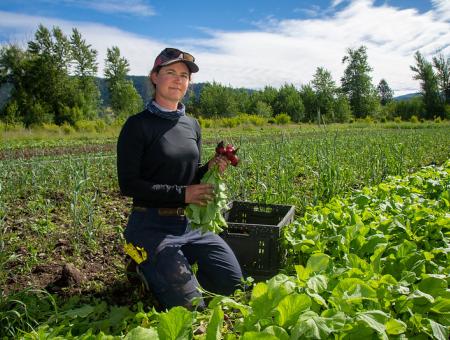
Organic Farming
Organic farming is an ecologically-based system that relies on preventative practices for weed, insect and disease problems, uses nontoxic methods to manage problems if they arise, and improves the natural resources of the land, including soil and water quality. NRCS can help organic producers develop a conservation plan that meets their goals, and can often help with financial assistance to implement elements of the plan.

